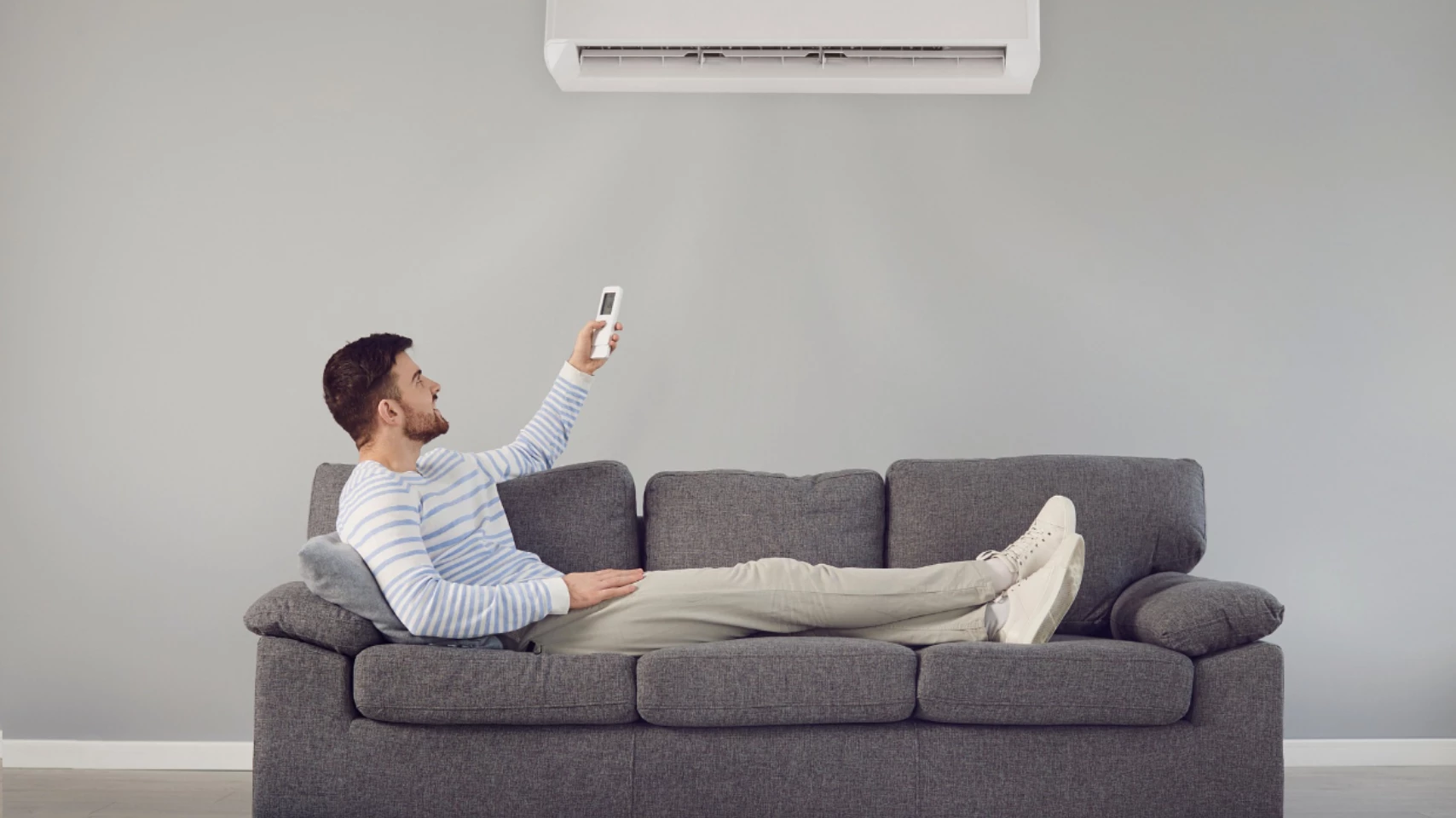It’s a hot South Carolina afternoon, and your air conditioner suddenly decides to quit. The fan’s off, the compressor’s silent, and all you can feel is frustration (and heat). What if I told you the problem could be a small but mighty component called the cooling contactor—a part you’ve probably never heard of, yet your AC relies on every time it runs?
This little switch works behind the scenes, controlling how and when your air conditioner powers on. When it fails, your system can go from reliable to unresponsive in seconds. Let’s break down what a contactor actually does, how to spot signs of trouble, and what to do if yours gives out.
What is the Role of a Cooling Contactor in an Air Conditioning System?
Think of the cooling contactor as your AC’s electrical gatekeeper. It’s a small device inside the outdoor condenser unit that manages the power flow between your thermostat, compressor, and fan motor.
Here’s how it works, step by step:
- Thermostat Sends the Signal: When the temperature inside your home rises above the setting you choose, your thermostat sends an electrical signal to the outdoor unit.
- Contactor Springs into Action: The contactor acts like a switch that opens and closes based on that signal. When it closes, it allows electricity to flow to the compressor and condenser fan motor.
- Power Transfer: Once engaged, it delivers full voltage from your electrical supply to the system’s major components, giving your AC the juice it needs to start cooling.
- Automatic Shutoff: When your desired indoor temperature is reached, the thermostat signals the contactor to open, cutting off power and pausing the cycle.
- Repetition: This process happens dozens of times a day, keeping your indoor climate steady and your AC running efficiently.
Without a functioning contactor, your air conditioner simply can’t switch on or off correctly. It’s the middleman between your comfort settings and your system’s performance.
How Do You Know If a Cooling Contactor is Failing?
Like any mechanical or electrical part, a contactor wears out over time. The more your AC cycles on and off—especially in hot, humid areas like Summerville—the more wear those internal components experience.
Here’s what to watch for if you suspect your contactor is going bad:
- Clicking or Buzzing Sounds: Normally, you might hear a soft click when your AC starts up. If you hear a constant buzzing, humming, or chattering sound from the outdoor unit, that’s a clue the contactor is struggling to engage.
- Delayed or No Start: You may notice the thermostat clicks on, but your outdoor unit doesn’t respond right away or at all.
- AC Turns On, Then Shuts Off Quickly: A failing contactor can cause intermittent power delivery, leading to short cycling or inconsistent cooling.
- Visible Burn Marks or Corrosion: If you (or a technician) inspect the contactor, you may see blackened spots, pitting, or rust on the metal contacts. That’s a sure sign of electrical arcing or moisture damage.
- AC Running Constantly: Sometimes, a contactor fails in the “closed” position, meaning your system won’t shut off even when it’s supposed to. This can overwork your compressor and skyrocket your energy bill.
Because these symptoms can mimic other AC issues like bad capacitors or wiring faults, it’s important to have a qualified technician diagnose the exact cause before replacing parts.
Can a Faulty Cooling Contactor Cause Your AC to Stop Working?
Absolutely. In fact, it’s one of the most common reasons an air conditioner won’t turn on, especially during the peak of summer when systems are under the most stress.
Here’s how it happens:
- Electrical Interruption: When the contactor’s internal coil burns out or the contacts stick, electricity can’t flow properly. Without that electrical connection, your compressor and fan motor simply can’t start.
- Overheating Components: A failing contactor may send inconsistent voltage to your system, leading to overheating or electrical damage. Over time, this can take out other vital parts—like your capacitor or compressor.
- Power Drain and Circuit Trips: Faulty contactors can cause power surges or inconsistent loads that trip your breaker or blow fuses.
- System Shutdown: Eventually, your system may stop responding altogether. The thermostat might still be working fine, but the outdoor unit remains silent.
The good news? Replacing a contactor is relatively straightforward and affordable, especially compared to the cost of major components like compressors. But catching the problem early is key to preventing larger repairs.
What are the Signs That Your AC is Experiencing Power Issues Due to a Contactor Failure?
When your cooling contactor starts acting up, your AC will often “tell” you—just not in words. Here are the clearest indicators your system’s power issues may trace back to this small but crucial part:
- Your AC Fails to Start at All: If your thermostat clicks but your outdoor unit stays quiet, the contactor may not be closing properly.
- You Hear a Constant Buzz: A persistent electrical hum from the outdoor unit usually means the contactor coil is struggling to energize.
- The Unit Runs Nonstop: If your system keeps running even when you turn the thermostat off, the contactor could be stuck in the closed position.
- Frequent Breaker Trips: Repeated electrical interruptions often indicate an internal short or power irregularity caused by the contactor.
- Uneven Cooling or Random Shutdowns: Your system might start and stop unpredictably because the contactor isn’t maintaining a solid electrical connection.
- Visible Wear or Debris: Dust, insects, and moisture can build up inside the contactor housing, leading to poor conductivity or corrosion.
- Higher Energy Bills: Inconsistent contact engagement can make your system work harder than necessary, drawing more power and driving up costs.
If you notice any combination of these signs, it’s best to call in a certified HVAC technician rather than trying to replace the contactor yourself. While it’s a small component, it connects directly to high-voltage lines—definitely not a DIY project unless you’re trained.
Why Contactors Fail and How to Prevent It
Most contactors fail due to a combination of age, electrical stress, and exposure. Over time, every start-up arc leaves microscopic burns on the metal contacts, slowly degrading their ability to conduct electricity.
Here are the most common causes:
- Normal Wear and Tear: Daily operation eventually wears down the internal coil and metal contacts.
- Overheating: Continuous use in high temperatures weakens insulation and causes metal fatigue.
- Pests and Debris: Ants, dirt, and moisture can build up inside the contactor box, disrupting the electrical flow.
- Voltage Fluctuations: Power surges or lightning strikes can burn out the coil or fuse the contacts.
- Poor Maintenance: Skipping seasonal tune-ups allows minor wear to become major damage.
To extend your contactor’s lifespan:
- Schedule annual AC maintenance.
- Keep your outdoor unit clear of debris and pests.
- Replace your air filter regularly to reduce system strain.
- Have your electrical connections inspected every year.
Preventive care costs far less than a mid-summer breakdown.
Final Thoughts
The cooling contactor may be a small piece of hardware, but it’s a huge player in your comfort. When it fails, it’s like pulling the plug on your entire air conditioning system. Recognizing the symptoms early—buzzing, no startup, or non-stop running—can save you from both discomfort and costly repairs.
Whether your AC needs a new contactor or just a routine check-up, calling a trusted local professional ensures your system runs safely, smoothly, and efficiently.
❄️ We Keep Your Comfort Connected – Elite Air & Heat of Summerville
At Elite Air & Heat of Summerville, we understand that small parts make a big difference in your comfort. As a locally owned HVAC company, we treat every home like our own, offering fast diagnostics, honest pricing, and reliable repairs—including expert replacement of failed contactors. When you call us, you’re not just getting a service—you’re getting a team that cares about your comfort as much as you do.
Let us keep your system running strong all season long. Contact Elite Air & Heat of Summerville today for trusted, professional AC repair and maintenance services that deliver results you can feel.


